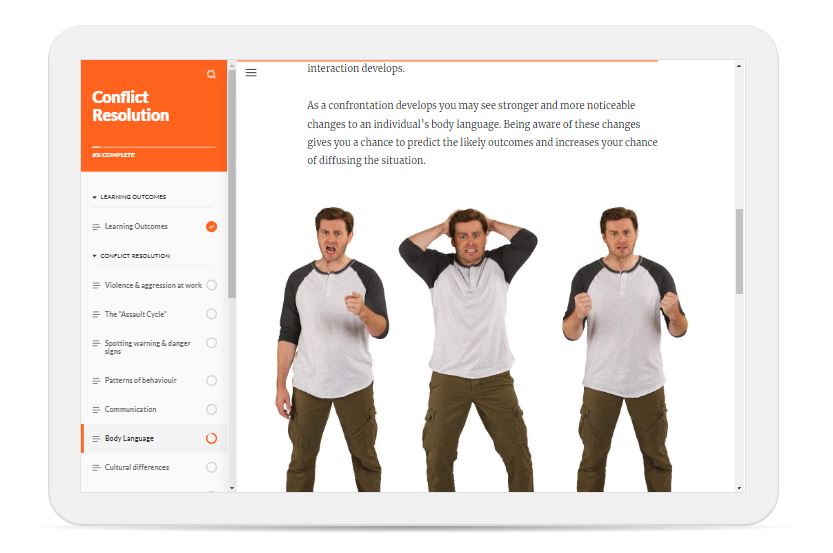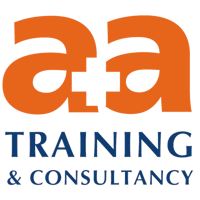Conflict Resolution

It is important that staff feel safe in their working environments. Violent behaviour not only affects them personally but indirectly it has a negative impact upon the standard of service and the delivery of care.
By completing/passing this course, you will attain the certificate Conflict Resolution
Course Content
- Describe the common causes of conflict and identify the different stages of conflict
- Learn from their own experience of conflict situations to develop strategies to reduce the opportunity for conflict in the future
- Describe two forms of communication
- Indicate the level of emphasis that can be placed on verbal and non-verbal communication during a conflict situation
- Underline the impact that cultural differences may have in relation to communication
- Identify the causes of communication break down and the importance to create conditions for communication to succeed
- Utilise three communication models that would assist them in dealing with different levels of conflict
- Recognise the behavioural pattern of individuals during conflict
- Recognise the warning and danger signals displayed by individuals during a conflict situation, including the signs that may indicate the possibility of physical attack
- Identify the procedural and environmental factors affecting conflict situations and recognise their importance in decision making
- Underline the importance of keeping a safe distance in conflict situations
- Summarise the methods and actions appropriate for particular conflict situations and that no two situations are same
- Explain the use of ‘reasonable force’ as described in law and its limitations and requirements
